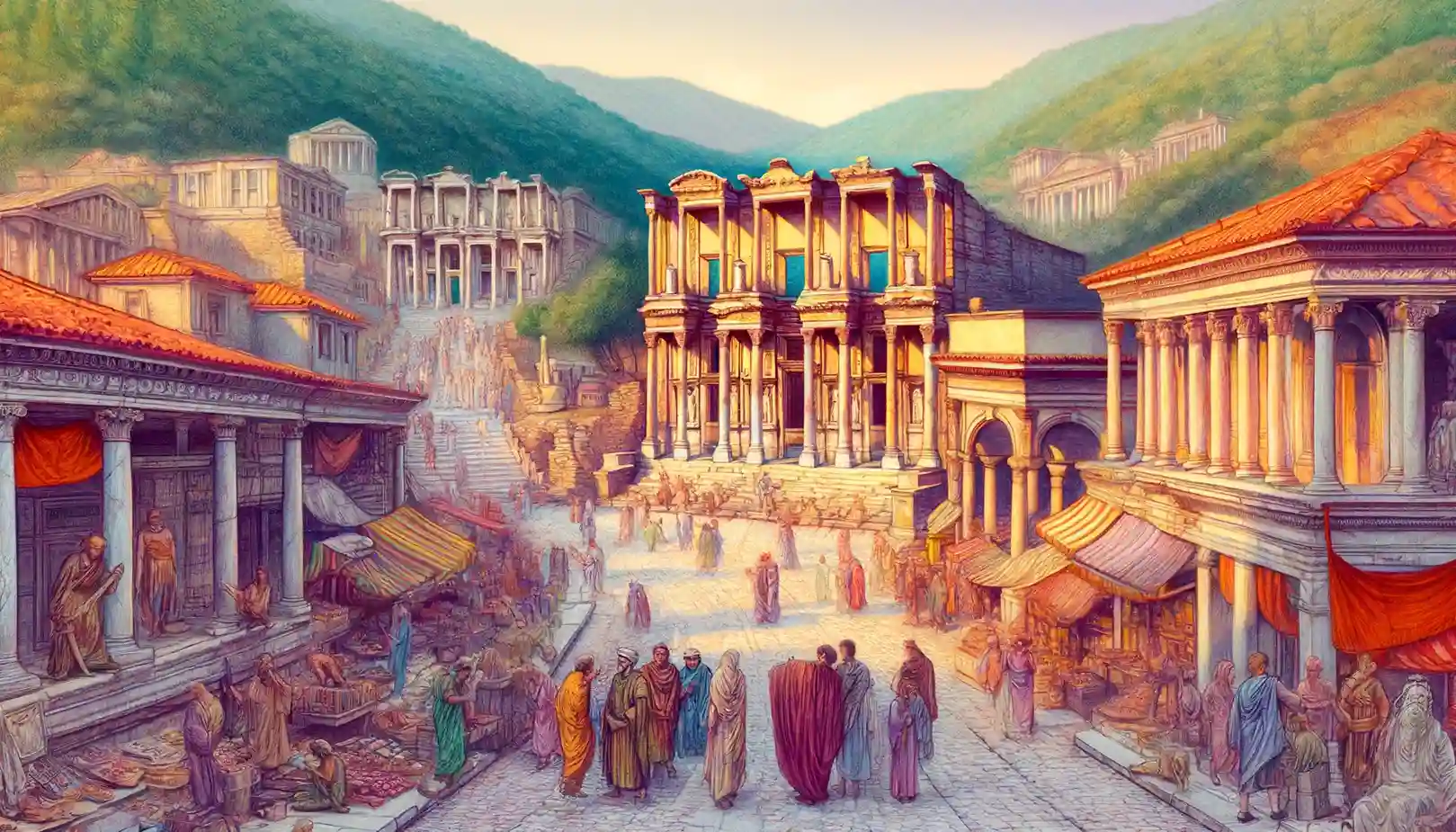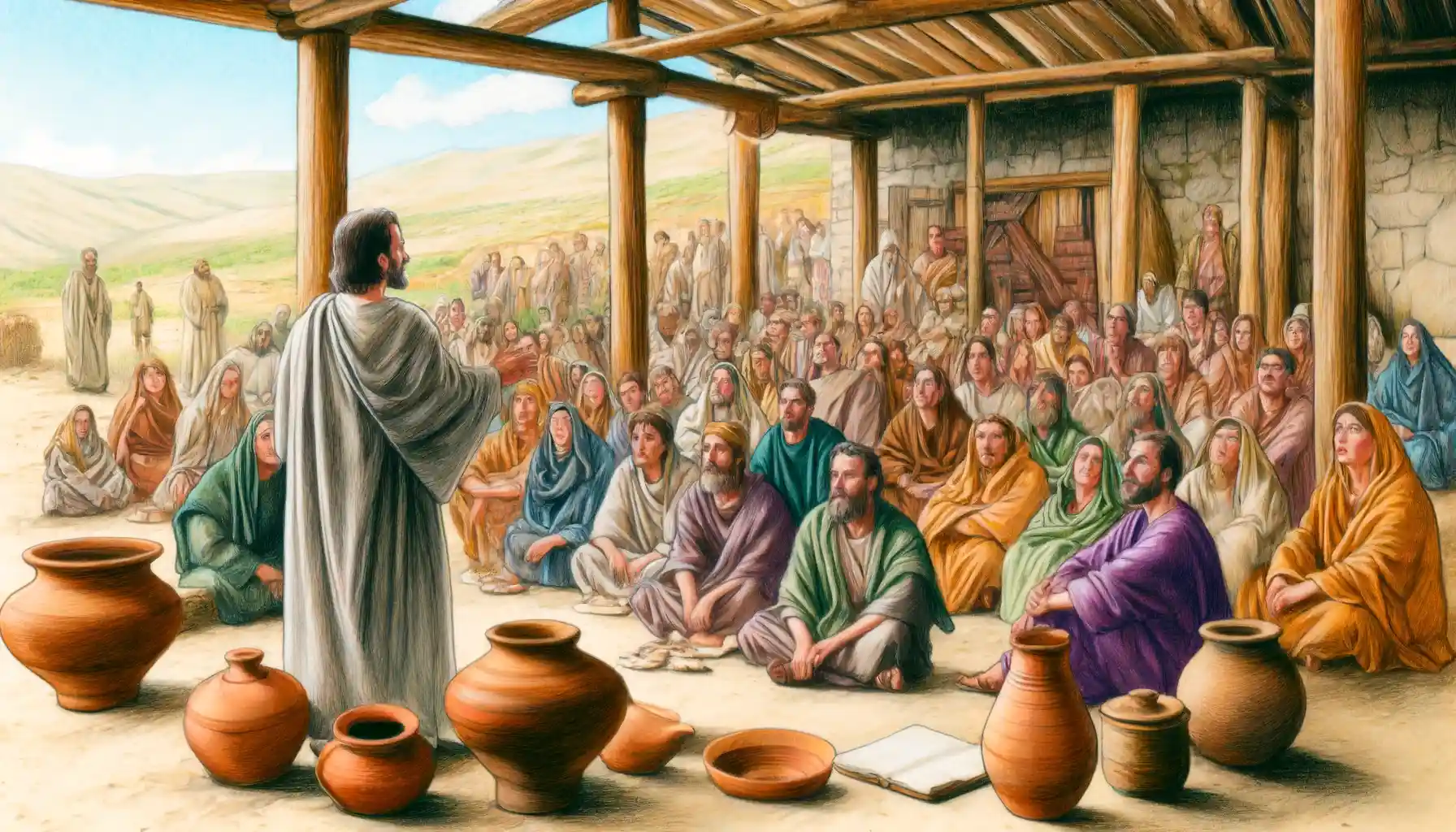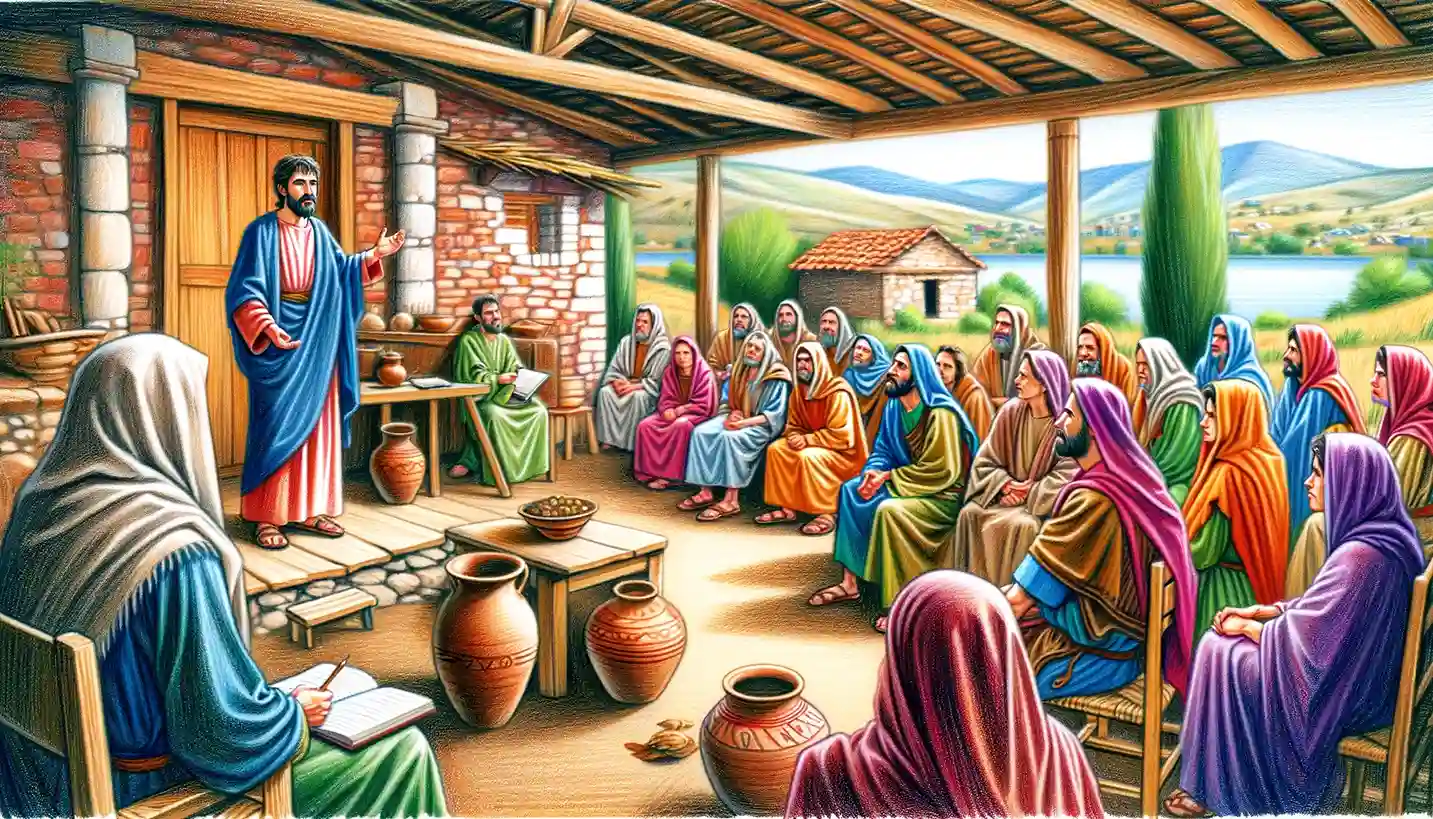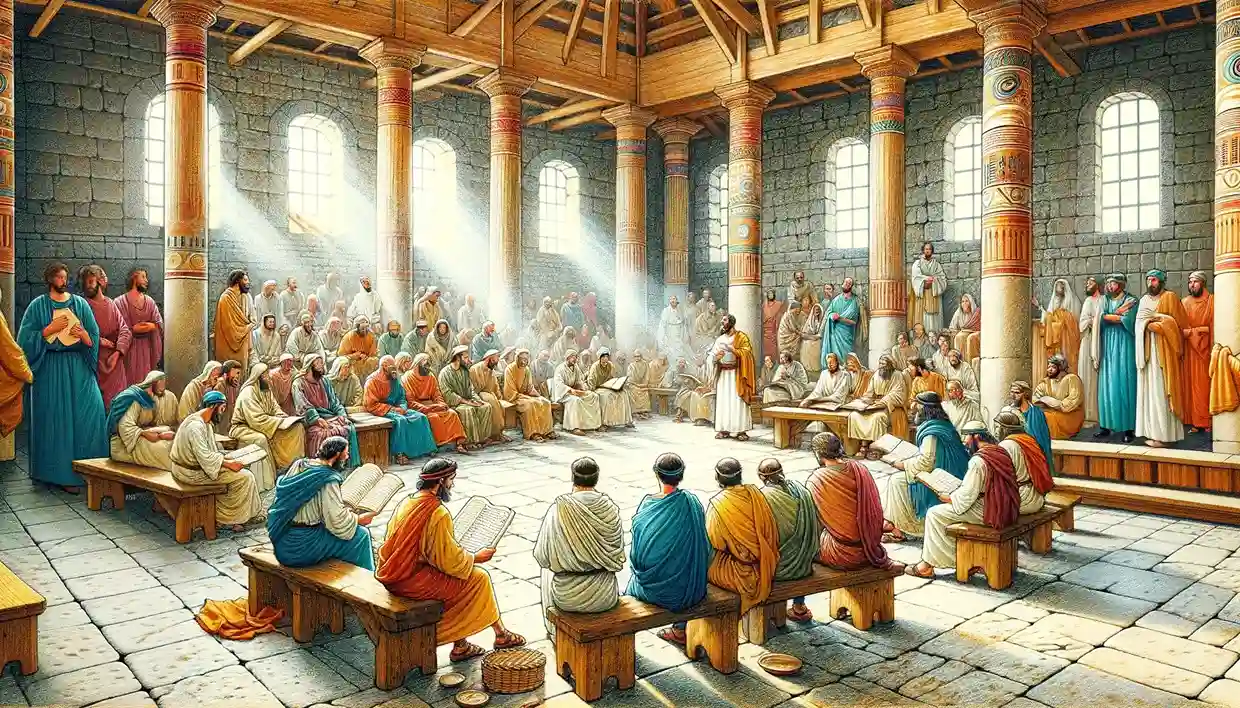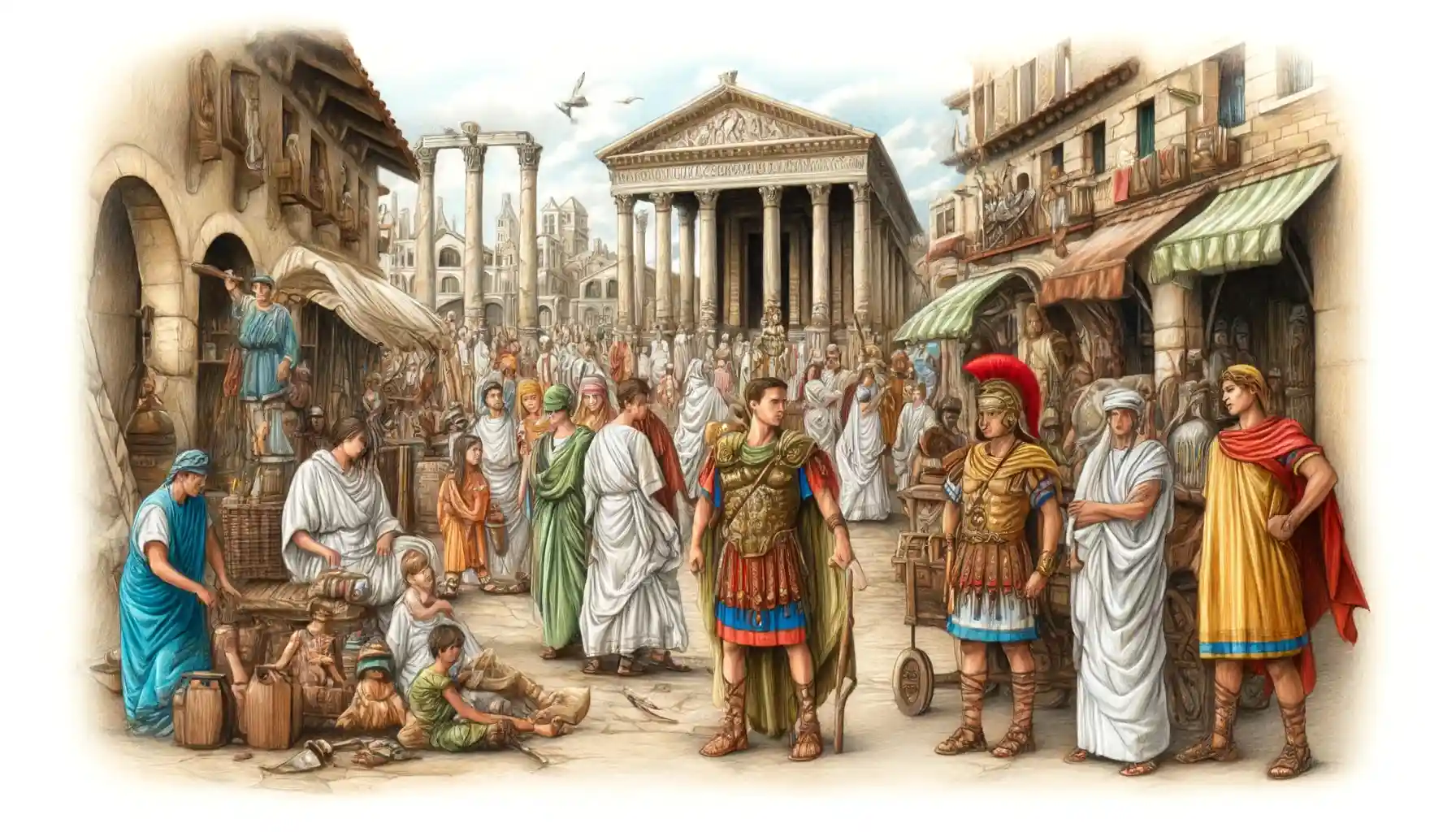Ephesus, an ancient city located in modern-day Turkey, was a significant center for early Christianity, known for its robust Christian community, the ministry of the Apostle Paul, and as the site of the Temple of Artemis, one of the Seven Wonders of the Ancient World.
The Thessalonians, addressed in the New Testament through First and Second Thessalonians, were an early Christian community in Macedonia’s city of Thessalonica, facing persecution and doctrinal challenges while exhibiting remarkable faith and resilience under the apostolic guidance of Paul.
The Colossians Church, primarily known through Paul’s Epistle to the Colossians, was an early Christian community in Phrygia, notable for its struggles with heretical teachings and its profound insights into the supremacy and sufficiency of Christ.
The Philippians Church, established by the Apostle Paul around AD 49-50 during his second missionary journey, was the first Christian congregation on European soil, located in the Roman colony of Philippi in Macedonia. This church is well-known for its themes of joy, unity, and generosity as outlined in the Epistle to the Philippians, one of Paul’s most personal letters, written while he was in prison. The Philippians Church, notable for its early converts like Lydia and a jailer, became a model of early Christian devotion and community through its embodiment of Christian virtues and its robust support of Paul’s missionary work.
The letters to the Corinthians provide profound insights into the early Corinthian church, addressing its challenges, moral issues, and theological questions, while offering timeless guidance for Christian living and church unity.
The Romans, as the dominant political and military power during the New Testament period, significantly influenced the early Christian narrative through their governance, infrastructure, interactions with key figures such as the Apostles Paul and Peter, and the persecution of Christians, ultimately shaping the spread and development of Christianity.
Rome, the capital of the Roman Empire, holds significant importance in biblical history, particularly in the New Testament, where it is depicted as a key center for early Christian activity involving pivotal figures such as the Apostles Paul and Peter, and played a crucial role in the spread of Christianity through its infrastructure and influence.
Paul’s epistles to various communities such as Rome, Corinth, Galatia, Ephesus, Philippi, Colossae, and Thessalonica address local issues and broader theological themes, shaping the foundational doctrines and practices of early Christianity.
Ananias of Damascus, conversion of Saul, Acts 9, early Christianity, Holy Spirit, baptism, divine intervention, obedience, transformation, Christian ministry, faith and trust, spiritual rebirth, early church history, theological significance
Damascus, a city steeped in both historical and biblical significance, serves as a pivotal setting in the Scriptures, featuring prominently from the Old Testament’s accounts of Aramean conflicts to the New Testament’s transformative tale of Saul’s conversion on the road to Damascus, encapsulating themes of judgment, mercy, and profound spiritual renewal.

